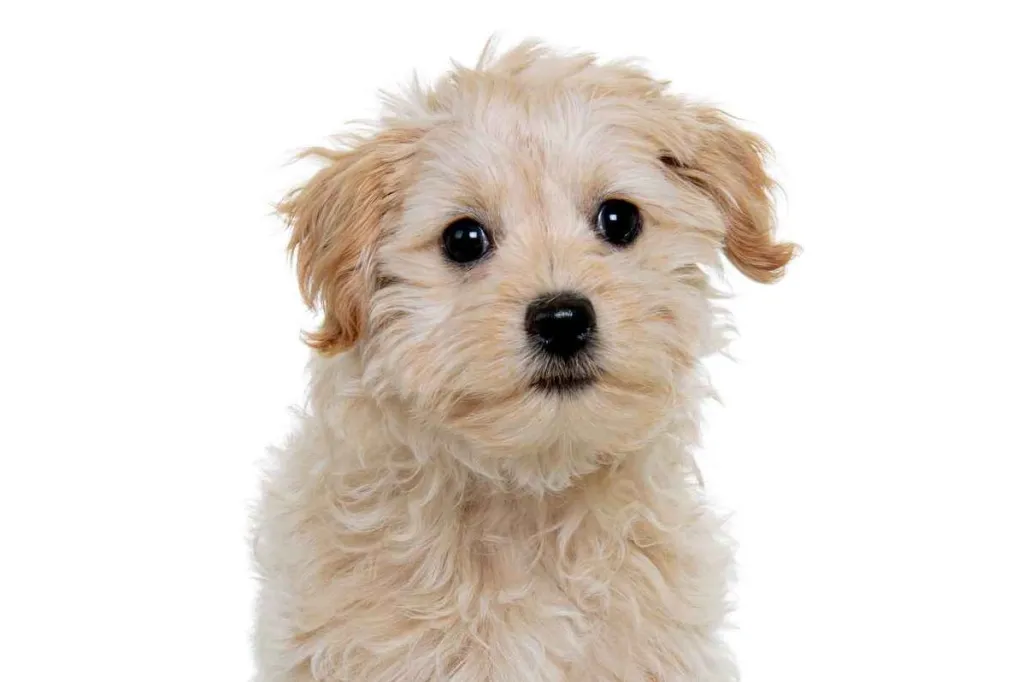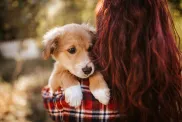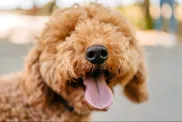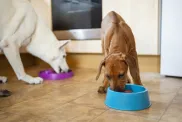The Chipoo or Chi-Poo is an adorable and cuddly crossbreed resulting from the mix of a Chihuahua and typically a Miniature Poodle. Weighing in typically between 5 to 15 pounds and standing at around 6 to 10 inches tall, Chi-Poos boast a compact yet sturdy build, ideal for households seeking a small-sized canine companion. Their coat varies in texture and color, often inheriting the hypoallergenic qualities of the Poodle, making them suitable for allergy sufferers.
Renowned for their spirited temperament and intelligence, Chi-Poos are dynamic and alert companions, always eager to engage in play or explore their surroundings. Their sociable nature extends to interactions with both humans and other pets, forming strong bonds with their families and relishing in affectionate attention. Despite their small size, Chipoos possess ample energy levels, requiring regular exercise and mental stimulation to keep them content. With proper training and socialization, these adaptable and lively canines thrive in various living environments, from bustling city apartments to suburban homes with yards. While they aren’t recognized by the major club organizations, the American Canine Hybrid Club recognizes the Chi-Poo as a breed.
Chi-Poo characteristics
- Height: 5 to 15 inches tall at the shoulder
- Weight: 5 to 20 pounds
- Lifespan: 12 to 15 years
Coat and color variations
The Chi-Poo has a coat that varies widely in texture and color, owing to the blend of their parent breeds’ genes. Their coats can be curly like a Poodle’s, soft and straight like a Chihuahua’s, or somewhere in between, resulting in a fluffy or slightly wavy appearance.
Color variations are extensive; Chi-Poos can come in shades like black, white, brown, cream, apricot, gray, or even a mix of these colors. Some may have a solid coat, while others sport a blend or even unique patterns, adding to their unique, endearing look. Their coat type and color, along with their compact size and expressive features, make each Chi-Poo visually distinctive.
Physical traits and appearance
Size and build
- Size: Small; typically between 5-15 pounds
- Height: Usually stands 5-15 inches at the shoulder
Coat colors and attributes
- Coat Type: Can be curly, wavy, or straight; often low-shedding
- Coat Length: Short to medium length, depending on the genetic mix
- Colors: Black, white, brown, cream, apricot, gray, or mixed
Additional physical features
- Face: Often round with expressive, large eyes
- Ears: Can be erect like a Chihuahua’s or floppy like a Poodle’s
- Nose: Small and dark, typically black or brown
- Tail: May be curled over the back or straight
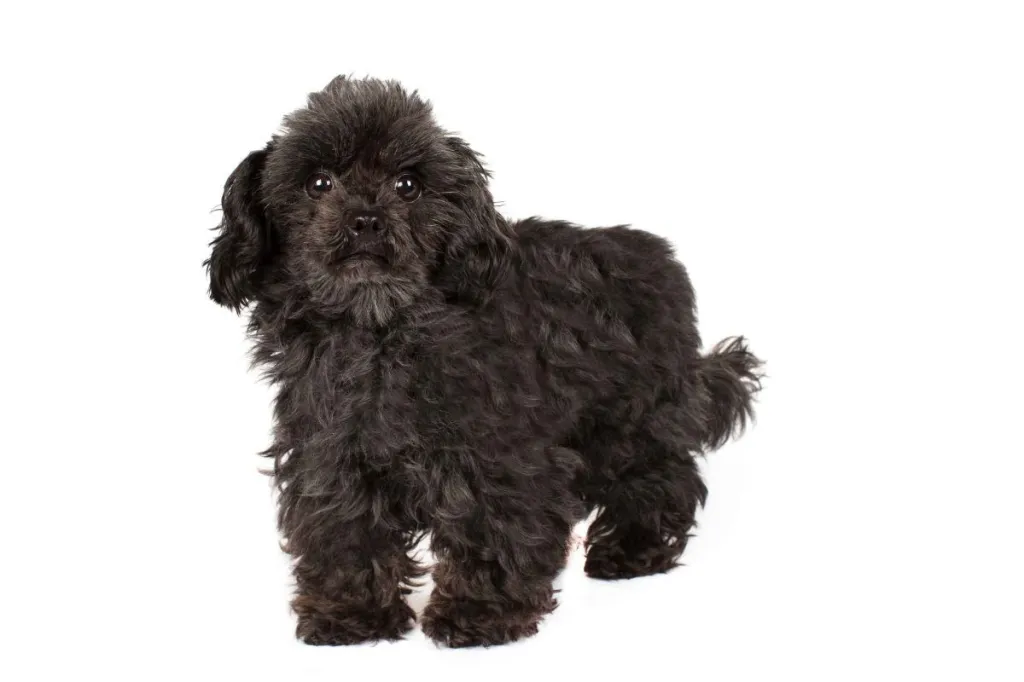
Chi-Poo History
The Chi-Poo, also known as the Chihuahua-Poodle mix, is a relatively modern hybrid breed that gained popularity in the late 20th and early 21st centuries. Like many designer dog breeds, the Chi-Poo was developed to combine the desirable traits of two distinct breeds: the loyal and spirited Chihuahua with the intelligent and low-shedding Poodle. The goal was to create a small, affectionate companion dog that would appeal to families and individuals looking for a pet with a charming personality and a coat that was less likely to trigger allergies.
Chipoo personality
The Chi-Poo blends the liveliness of the Chihuahua with the intelligence and playfulness of the Poodle. These dogs are often affectionate and deeply loyal, forming strong bonds with their human family members. Chi-Poos are known to be energetic, with a playful streak that makes them fun companions for both children and adults. Despite their small size, they can be surprisingly brave and may exhibit a protective nature. With proper socialization, they are friendly and sociable, though they may sometimes exhibit a bit of a “big dog” attitude, especially around larger dogs.
Behavior and temperament
- Affectionate: Strong bond with family, often very cuddly
- Energetic: Loves playtime and mental stimulation
- Intelligent: Quick learners, often eager to please
- Loyal: Deeply attached to their owners
- Alert: Can be good watchdogs, alerting owners to unusual sounds
- Sociable: Friendly with proper socialization, though sometimes wary of strangers
- Playful: Enjoys interactive games and toys
- Protective: May exhibit protective tendencies despite small size
- Curious: Loves exploring and discovering new things
Training and socialization
Early socialization and positive reinforcement training are crucial due to their intelligence and potential stubbornness. Of course, their intelligence allows them to pick up commands quickly, so early training is key to establishing good behavior from the start. Use praise, treats, and affection to reward desired behavior. Chihuahua Poodles respond well to positive reinforcement, and this approach will keep them motivated and engaged.
Training tips:
- Be Consistent: Consistency is crucial in training. Use the same commands and routines to avoid confusion. This helps your Chihuahua Poodle mix understand what is expected of them.
- Keep Training Sessions Short and Fun: The Chi-Poo is intelligent but can lose interest if training sessions are too long or repetitive. Keep sessions short (10-15 minutes) and engage with varied activities.
- Mental Stimulation: Incorporate puzzle toys, obedience training, and interactive games into their routine to challenge their mind. A bored Chi-Poo can become restless or destructive. Once basic obedience is established, teach more advanced commands or tricks. Their intelligence makes them excellent candidates for agility training, fetch, or scent games.
Remember that Chi-Poos are sensitive dogs that respond best to gentle, patient training approaches. Their intelligence makes them quick learners, but their occasionally stubborn nature means persistence is key.
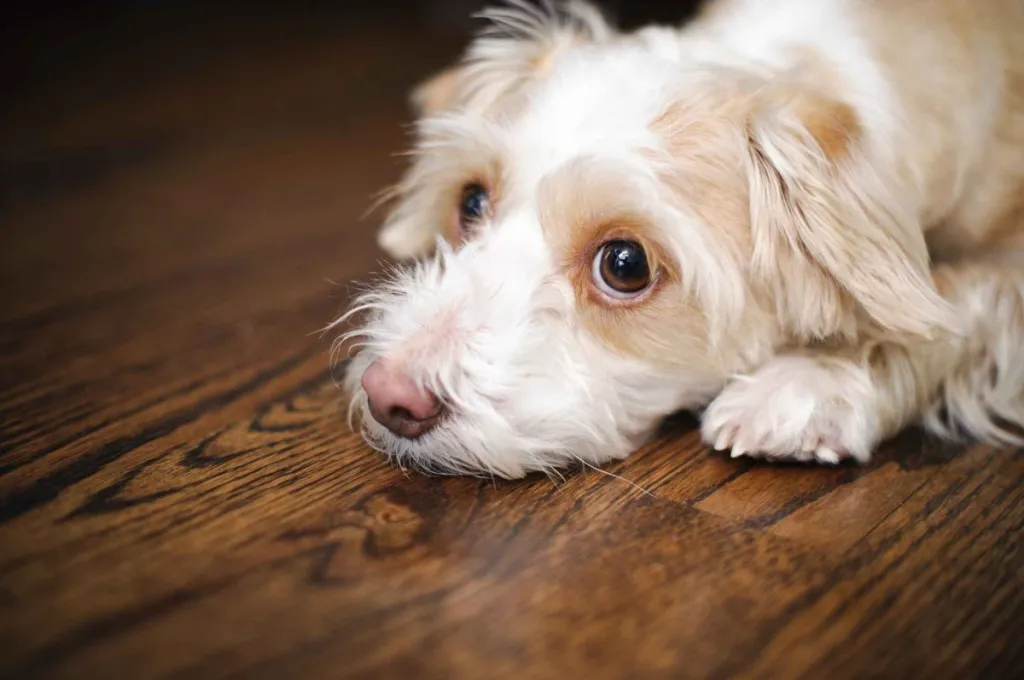
Chi-Poo and family compatability
Chi-Poos are adaptable companions best suited to singles, couples, or families with older children who understand their sensitive nature. These small dogs excel in apartment living and don’t need large outdoor spaces, making them ideal urban pets. While they can get along with other similarly-sized pets and older children, early socialization is key, and supervision is needed around young kids due to their potential to nip when startled. Chi-Poos form strong family bonds but may be reserved with strangers, requiring proper socialization to manage protective tendencies.
They’re not ideal for frequently absent households, as they can develop separation anxiety without consistent companionship. These dogs thrive in calm, structured environments with regular attention, enjoying daily walks and playtime without demanding intense exercise. Their small size and weather sensitivity make them best suited to controlled living conditions with reliable supervision.
Chi-Poo care
Caring for a Chi-Poo involves meeting their moderate exercise needs, maintaining a balanced diet, and giving them plenty of love and attention. Though small, Chi-Poos are energetic and enjoy daily play sessions, short walks, or even indoor games that keep them physically and mentally engaged. They also benefit from training sessions and puzzle toys due to their intelligence, which helps prevent boredom and promotes good behavior. Additionally, like both Chihuahuas and Poodles, Chi-Poos can be sensitive to temperature changes, so care should be taken to keep them warm in cold weather and cool in the heat.
Chi-Poo grooming needs
Chi-Poos generally have low to moderate grooming needs, though this depends on their coat type, which may vary from wavy or curly to straight. Curly or wavy-coated Chi-Poos require regular brushing to prevent mats and tangles, ideally every other day. Straight-coated Chi-Poos may need brushing once or twice a week. Regardless of coat type, regular ear cleaning is necessary to prevent infections, and nail trimming should be done every few weeks. Keeping a consistent grooming routine is important, especially if your Chi-Poo has inherited the Poodle’s curly coat, which can mat if not maintained.
How to groom a Chi-Poo
Coat care
- Brush Regularly: For wavy or curly coats, use a slicker or pin brush to remove tangles every other day. For straight coats, brush once or twice a week to keep the coat smooth and reduce shedding.
- Bathe as Needed: Bathe your Chi-Poo every 4-6 weeks or whenever they’re particularly dirty. Use a mild dog shampoo to avoid drying out the skin, especially if the coat is curly.
- Trim Hair: If your Chi-Poo has a curly or wavy coat, occasional trimming will keep it manageable. Every 6-8 weeks, a trim (either at home or by a groomer) can help maintain their coat length and shape.
Ears, teeth, and nails
- Clean Ears: Use a dog-safe ear cleaner once a week, wiping the outer parts with a cotton ball to reduce the risk of infection.
- Brush Teeth: To prevent dental issues, brush their teeth with dog-safe toothpaste several times a week.
- Trim Nails: Check their nails every 3-4 weeks and trim them as needed to prevent overgrowth and discomfort.
Feeding and nutrition
Feeding a Chi-Poo requires a balanced diet that meets their specific nutritional needs as a small, active dog. A high-quality dog food, either dry kibble or a combination of wet and dry, is ideal to ensure they get essential nutrients like protein, healthy fats, and vitamins. Protein is especially important to support their energy levels and muscular development, while Omega-3 and Omega-6 fatty acids contribute to healthy skin and a shiny coat. Chi-Poos can be prone to obesity if overfed, so monitoring portion sizes and avoiding excessive treats is essential. Additionally, feeding schedules are best kept consistent with set meal times, as Chi-Poos are prone to dental issues, so avoiding too many starchy fillers in their diet is beneficial for their oral health.
Portion Sizes for a Chi-Poo
- Puppies: ¼ to ½ cup of high-quality puppy food, divided into 3-4 small meals per day.
- Adults (5-15 pounds): ½ to 1 cup of adult dog food per day, split into two meals (adjust based on activity level).
- Seniors: Slightly reduce portion size to prevent weight gain, approximately ⅓ to ¾ cup per day in two meals, depending on activity level and weight.
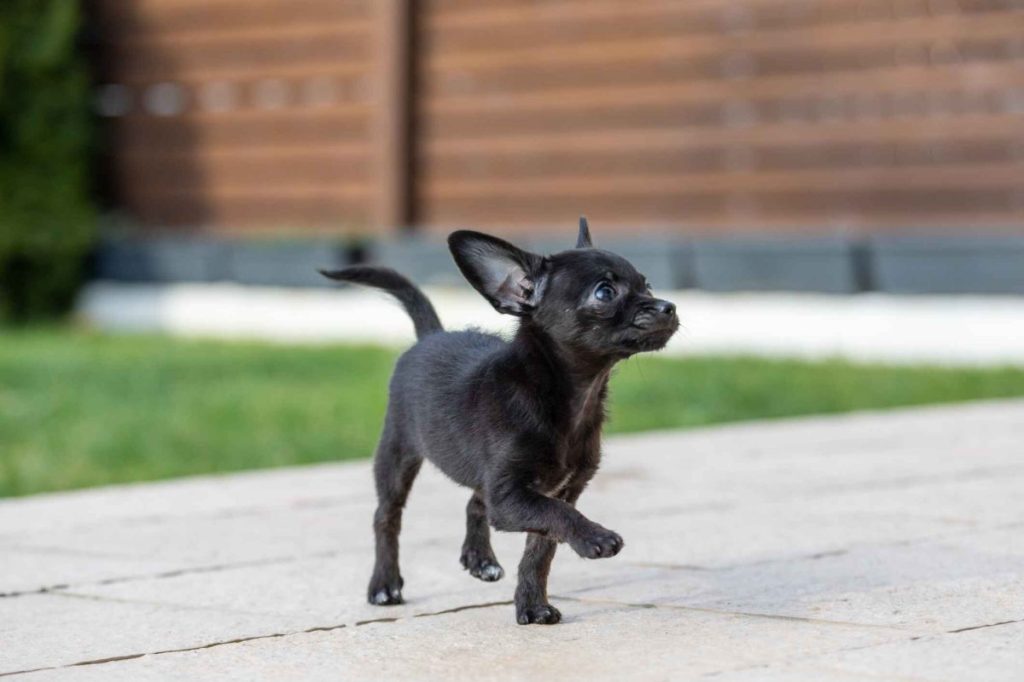
Chi-Poo health issues
The Chi-Poo breed is predisposed to some of the same conditions that the Chihuahua and Poodle also face. While most are generally healthy, some may be prone to a few health issues, which is why it is important to maintain good care and regular veterinary checkups. Some of the more common health problems Chi-Poo’s suffer from include:
- Overactive Tear Glands: Overactive Tear Glands in a Chi-Poo can lead to excessive tearing, requiring regular cleaning to prevent irritation and potential infection
- Hypoglycemia: Hypoglycemia, a common concern in small breeds like Chi-Poos, demands consistent feeding schedules and monitoring to prevent dangerous drops in blood sugar levels.
- Glaucoma: Glaucoma poses a risk to Chi-Poos, necessitating routine eye exams to detect increased intraocular pressure early and prevent vision loss.
- Luxating Patella: Luxating Patella, a condition where the kneecap dislocates easily, might require surgical intervention for severe cases, ensuring the Chi-Poo’s mobility and comfort.
Chi-Poo rescue groups
It may be hard to find a breed-specific rescue for Chi-Poos because they are a mixed breed. However, you may want to try Chihuahua or Poodle breed-specific rescues, as they often care for mixes, as well. Here are some rescues you can try:
If you choose to purchase a Chi-Poo puppy, choosing a reputable breeder is crucial. Reputable breeders are committed to breeding healthy, well-socialized puppies that will make great companions. They will screen their breeding stock for health problems, socialize their puppies from a young age, and provide you with lifetime support. On the other hand, backyard breeders are more interested in making a profit than in producing healthy, well-adjusted dogs. They may not screen their breeding stock for health problems, and they may not socialize their puppies properly. As a result, puppies from backyard breeders are more likely to have both health and behavioral issues.
